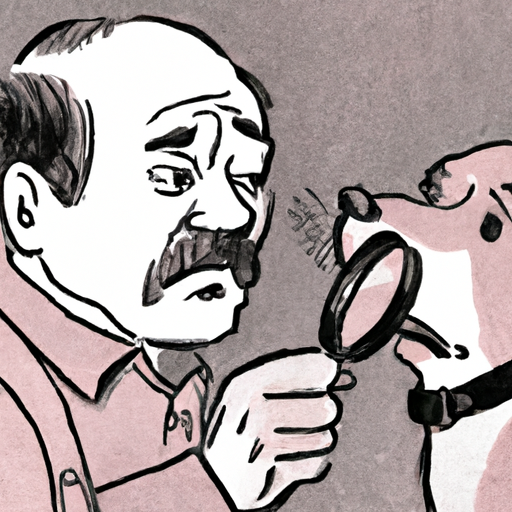If you’re a dog owner, you’ve likely noticed that your furry friend’s nose can often be wet and cold. But what happens when your dog’s nose starts to drip? Is it cause for concern? In this article, we’ll explore the possible reasons behind your canine’s nasal discharge, what you can do to help, and when it’s time to seek professional advice.
1. Understanding Your Dog’s Normal Nose
Before we dive into the reasons why your dog’s nose might be dripping, it’s important to understand what a normal nose for a dog looks like.
A healthy dog’s nose can naturally be wet and cold due to moisture produced from their nasal glands. This moisture aids in their sense of smell and helps regulate body temperature. Factors like weather, activity level, and hydration can cause slight variations in the wetness of your dog’s nose.
2. Potential Causes of a Dripping Nose
There can be several reasons why your dog’s nose is dripping. Some of the common causes include:
-
Allergies: Just like humans, dogs can be allergic to things like pollen, dust, mold, and certain foods.
-
Dental issues: Problems like tooth abscesses can manifest as nasal discharge.
-
Respiratory infections: Bacterial, viral, or fungal infections can cause a runny nose.
-
Foreign bodies: If your dog has something stuck in its nose, it may produce more mucus to try to expel the object.
-
Trauma: Any injury to the nose can result in a discharge.
3. When to Seek Veterinary Help
While a minor runny nose might not be a cause for alarm, there are certain signs that should prompt you to seek veterinary help. These include:
- The discharge is bloody or greenish-yellow.
- Your dog is pawing at its nose or seems to be in pain.
- They show signs of difficulty breathing or excessive sneezing.
- The discharge is accompanied by other symptoms like loss of appetite, fever, or lethargy.
4. Treating a Dripping Nose at Home
In some cases, you might be able to provide some relief to your dog at home.
-
Keep them hydrated: A well-hydrated dog can better fight off infections and clear out nasal passages.
-
Clean their nose: Gently wipe your dog’s nose with a warm, wet cloth to remove any discharge.
-
Limit allergen exposure: If you suspect allergies, try to reduce your dog’s exposure to the allergen.
Remember, these remedies are not a substitute for professional veterinary care. Always consult with your vet if you have any concerns about your dog’s health.
5. Table: Possible Causes and Symptoms
| Possible Cause | Symptoms |
|---|---|
| Allergies | Sneezing, itching, watery eyes |
| Dental issues | Bad breath, difficulty eating, swollen face |
| Respiratory infections | Coughing, fever, loss of appetite |
| Foreign bodies | Pawing at the nose, sneezing, nosebleeds |
| Trauma | Swelling, visible injury, pain |
FAQ
Q: Is a wet nose a sign of a healthy dog?
A: Not necessarily. A healthy dog’s nose can be wet or dry. A dripping nose, however, could indicate an underlying issue.
Q: Can I give my dog human allergy medication?
A: Never give your dog any medication without consulting your vet first.
Q: How can I prevent my dog from getting a runny nose?
A: Regular vet check-ups, a healthy diet, and limiting exposure to allergens can help keep your dog’s nose healthy.
Q: Should I be worried if my dog’s nose is dripping?
A: If the dripping is accompanied by other signs of illness or distress, or if it’s persistent, it’s best to consult with your vet.
Remember, your furry friend relies on you for their health and wellbeing. Stay observant, informed, and prepared to provide the best care possible.



